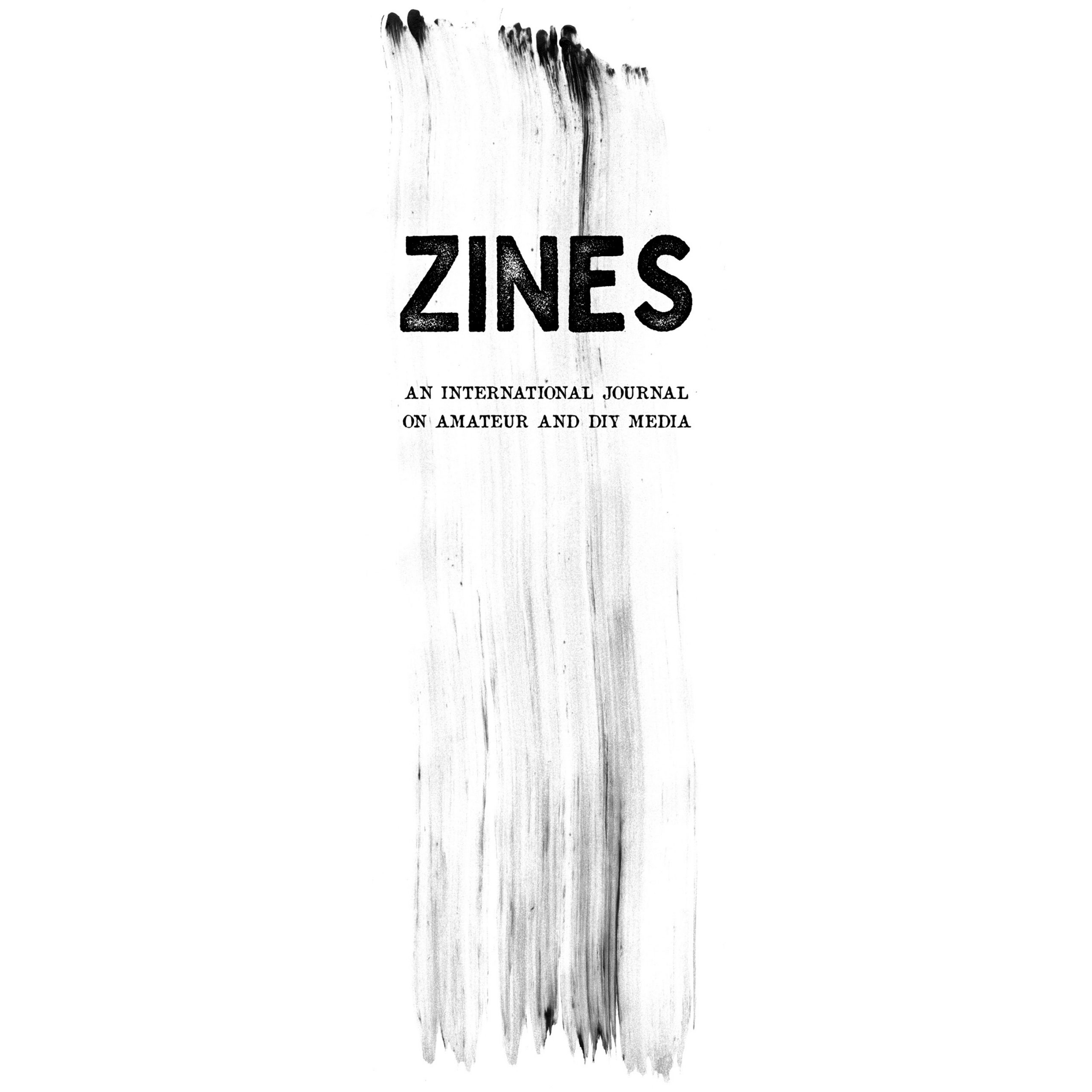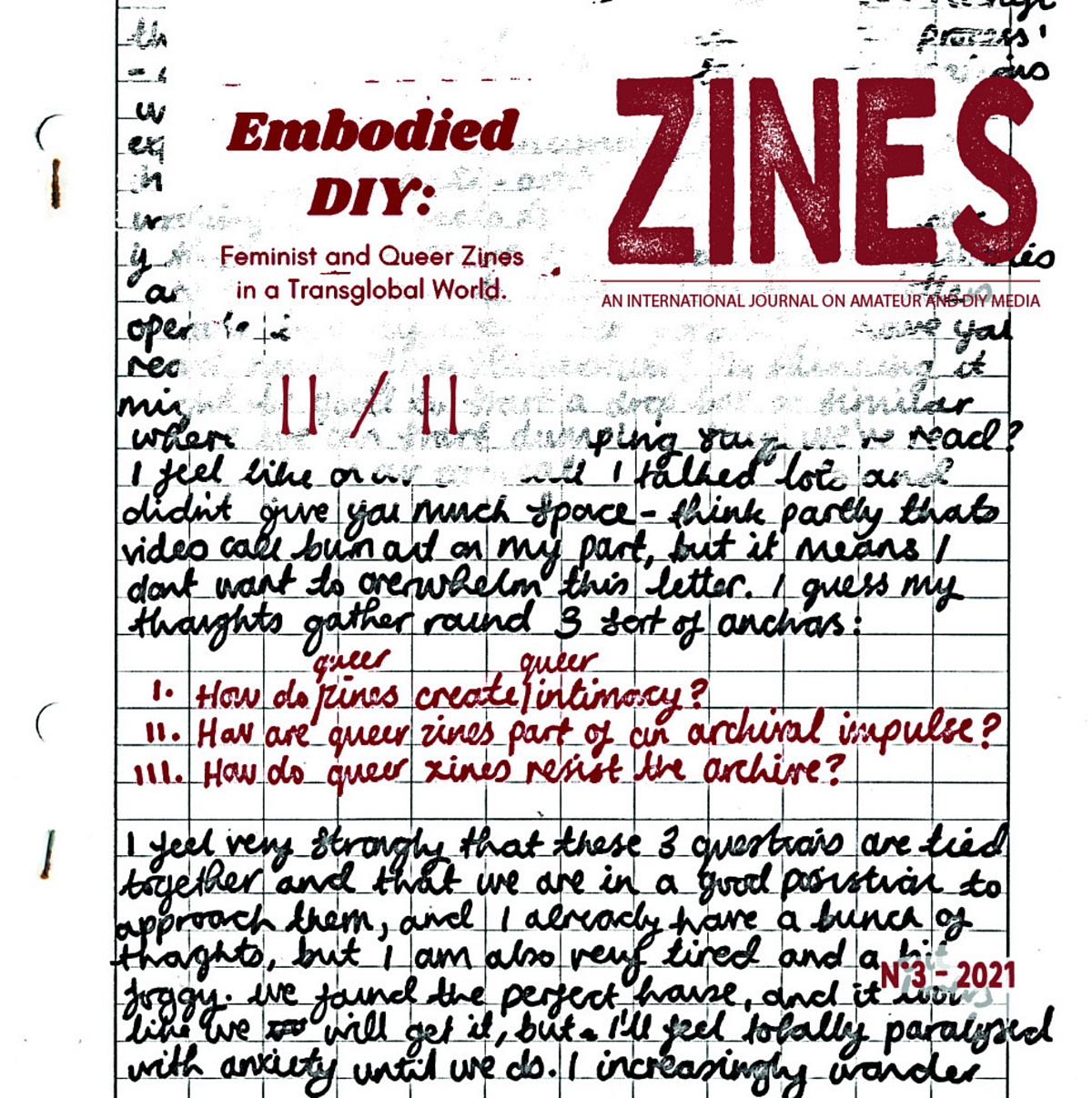
Zines, Issue 1
Journal, ed., Samuel Etienne, 102 pgs, Strandflat, strandflat.fr, 20 euros
Zine studies. Zine-ography. Zine theory, even! Is academia ready to recognize the impact of lo-fi self-publishing? And would such recognition benefit zine-makers?
Possibly. As evidence, look no further than the recent publication of the first issue of Zines: An International Journal on Amateur and DIY Media, a peer-reviewed journal about zines. While there have been a number of archivists and media studies scholars over the years who have championed zines, the launch of this official journal made me feel valued in a new way. For zines to be an object of rigorous study felt like a badge of legitimacy, a nod that my self-published work is finally being recognized as worthy of analysis. We are serious writers of legitimate literature, and the journal is proof.
Of course, about five seconds after my heart swelled with recognition, it was filled with doubt. Was my excitement proof of my own vanity, or worse, a betrayal of true zine values? I turned to the medium because I was so tired of trying to fit my niche writing into a mainstream publishing game that would never find it commercially viable. Like many of my peers, I see zine-making as a rejection of exclusionary institutions like academia and big publishing. I should no longer need their validation, yet it seems part of me desires it. Conflicted, I wondered how other zine people felt about the idea of a bi-annual journal intellectualizing zines.
Richard Larios, for one, sees promise in the journal.
“The intersection of academic review and zines are a great pair,” says Larios, who owns Los Angeles-based Feral Publishing. Beyond just zines, Feral has put out a number of books collecting zine series, and Larios thinks it’s crucial to capture these documents. “Zines are first-hand accounts … [of] ideas on the fringe.”
“The idea of a peer-reviewed academic journal about zines has me all kinds of curious. On one hand, more people possibly finding out about zines sounds like a positive for me, so let the word spread as it will,” responded Silver Nyx of Sea Green Zines, voicing concern over possible gatekeeping. “On the other hand, I’m wondering what are the qualifications for a ‘zine expert’ to provide the peer reviews?”
My conflict exactly. For all of its potential, would Zines exclude or misunderstand the very people who produce the object of study — that is, zine creators? Who is this for, and who might it exclude?
So I went to the source, and expressed my mixed reaction to Samuel Etienne, an academic based in Paris and the editor of
Zines. I was encouraged to learn that he has some proper zine cred, active in the French and international zine scene since the mid ’80s. Two years ago, Etienne abandoned his career as an earth scientist to start a new intellectual home for zines, and his journal launched in September 2020.
“I noticed the [increasing] interest of academia [in] zines … and I thought that zines should be studied by insiders first,” Etienne explains. “I confess that I became an academic professor thanks to the DIY ethos I learnt from the zine practice (audacity first), and Zines is my way to acknowledge the zine culture.”
He further explained that making zines fostered a “cross borders” outlook which he took into his career, where he worked with biologists, ecologists, physicians, sociologists, etc. “Academic researchers and artists have a lot in common regarding creativity and experimentation.”
Etienne’s editorial range shows that he and his colleagues understand the trickiness of formalizing zine study. In “Problematizing the Methodology”, Laura Lopez Casado directly addresses the paradox at hand, raising some fascinating ethical questions about intellectual property, citation, profit, and distribution. Casado’s questions are borne from what she calls “the process of institutionalization of counter-hegemonic knowledges,” adding, “There is a certain fear, on the side of the movements that seek to change society, as well as of subcultures, that the knowledge created and accumulated by them may be captured or co-opted.” This framing is reassuringly echoed throughout the journal.
Perhaps it’s not such an odd fit after all, then. Early journals were practically zines themselves, I learned in the introduction to Zines, “mimeographed with cut and paste editing” just like the early sci-fi fanzines. The method and format for research, writing, annotating, and peer-reviewing these ideas may be academic, but the work grounds itself in zines’ scrappy heritage rather than abandon it.
The journal’s opening article, “You Should Major in Zines,” by Lyla Byers and Anthony Kwame Harrison, excited me as a hands-on educator. It presents case studies where zines “harness student creativity, foster critical thinking, draw out connections between the personal and the political, and promote community building.” The class it profiles uses zines to “make complex concepts easily understandable and interesting” and discusses zines’ even in the study of “non-creative” fields such as economics.
I am convinced, of course, that zines are an amazing pedagogical tool, but had some concern that this somewhat neutral use could usurp or dilute the social and political context of zines.
I love the tri-lingual aspirations of the journal, making it accessible to that many more readers. Journal founder Etienne says, “It is important for me to cover all the diversity of zines, including those produced in non-Western countries. This is why we accept papers written in French or Spanish: French because I thought this might attract contributions from French-speaking Africa and Quebec, and Spanish to include Central and South America. This is also why I tried to include in the editorial board academics and zine librarians from all continents.” This is still a work in progress, but he hopes to add members from Japan, Southeast Asia, and Africa soon.
I was particularly struck by an interview with two teachers who collaborated with prisoners in Greece to produce a zine, Behind the Walls. The results were, of course, far more profound than the words on the page alone. One of the teachers, Iokasti Mazopoulou, recalls how, at the insistence of the prisoners, even a prison guard participated. The guard’s authority, it seems, gave the prisoners confidence and credibility; if Zines does the same for me and other zine authors, why shouldn’t that be a positive thing? Antigone Eustratoglou says, “I feel that as long as just one more person is convinced that his story is worth telling and that there is always someone out there willing to really listen, we have succeeded.” This, to me, reflects the best of zine culture.
“DIY Print Activism in Digital Age” by Kin-long Tong expanded the global scope of the journal, explaining that during “the Umbrella Movement in 2014 and the Anti-Extradition Law Amendment Bill Movement in 2019 … many artists and activists used zines as a means to participate,” with digital means of production and distribution playing an important role. Many zines were mentioned, such as Harcourt Village Voice, written for and about the temporary community of protestors and their daily lives.
The one that caught my interest the most, though, was In the Million People Protest, My Daughter Asked Me…, which I was able to read online. Straight-forward and relatable, in 15 short pages it introduced me to the complex, important issues of the protests, which I wasn’t that familiar with, and their relation to the complex, important issues of parenting, which I know all too well. All of this goes to show that an international zine journal and the digital availability of zines of all kinds can have inestimable importance in bringing together the vast family of humanity.
Some of the later Zines articles were eminently useful, if perhaps slightly less academic in tone. If Zines helps zinesters gain readers, that is valuable, but it also documents zinester ingenuity and the diversity of the practice, including people using. Dropbox to create and disseminate zines, having zine release parties, and using unconventional forms and materials. Not to mention, the extensive bibliography alone, here, and in each article, is valuable to zinesters who want to understand how their work is perceived and valued.
At their best, both zines and academic publishing celebrate and enable the free exchange of ideas and foster a love of learning and thinking. They expand our understanding of the world, as do all forms of knowledge sharing. Academia does tend to be exclusive, too often undervaluing the expertise, knowledge, and experience of people without access to or interest in those echelons. But that is academia at its worst. Zines, instead, offers something to everyone — zinesters, researchers, and those who are both.
